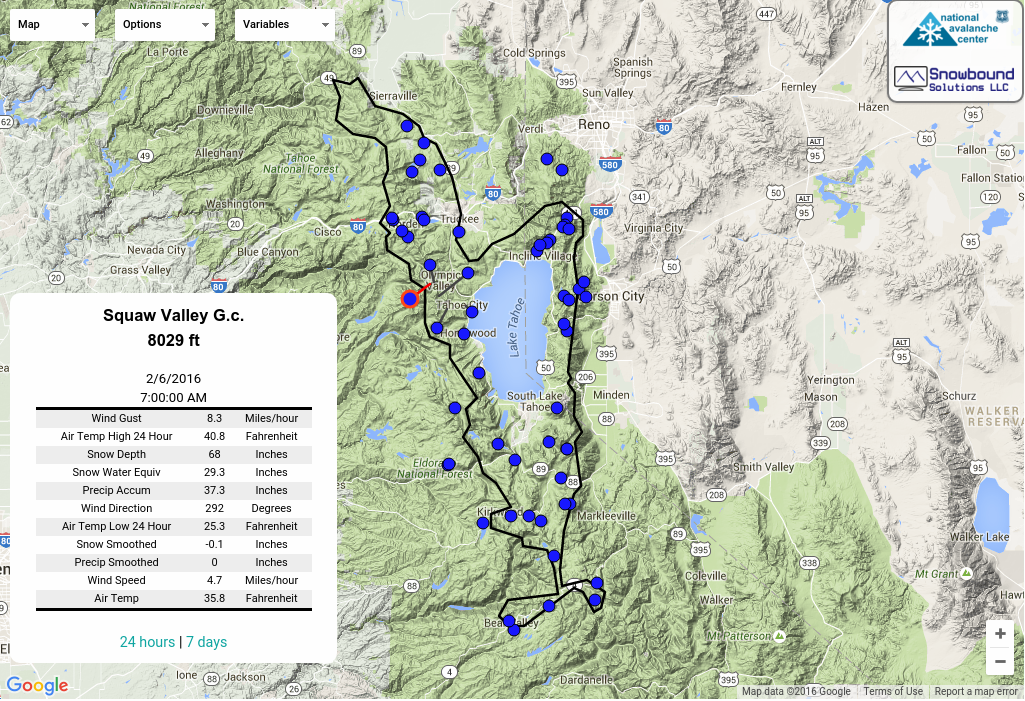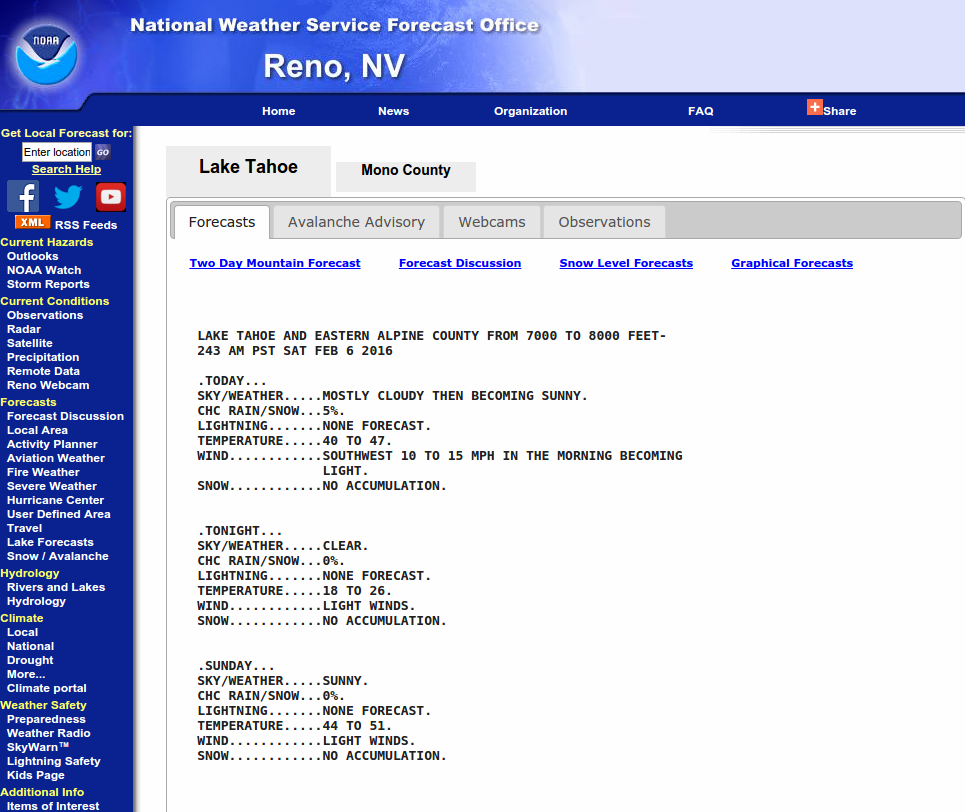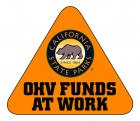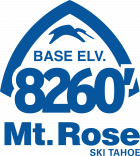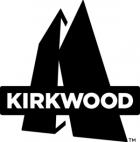
This Avalanche Advisory was published on March 13, 2013:

|
March 13, 2013 at 6:59 am |
|
Both above and below treeline, areas of MODERATE avalanche danger exist on all aspects on slopes 35 degrees and steeper due to a combination of persistent slabs on NW-N-NE aspects and wet snow instability on all aspects. |
|
|
|
Forecast Discussion:
The ridge of high pressure over the forecast area will flatten today. This will result in increasing cloud cover and increasing southwest winds today, tonight, and tomorrow. Another very warm day is expected today with possible record high air temperatures. An air temperature inversion is in place this morning with air temperatures above 6,700' in the mid 30s to mid 40s. Maximum daytime air temperatures above 7,000' are expected to warm well into the 50s today, pushing 60 degrees in some locations. Increasing mid and high level cloud cover along with increasing southwest winds is forecast for tonight and tomorrow.
Observations made yesterday on Silver Peak (Pole Creek area) revealed improvement in the stability of near crust facet layers at the base of the recent storm snow (pit profile, video, more info). These layers contributed to human triggered persistent slab avalanches in the Carson Pass and Mount Rose areas on Saturday and the Donner Summit area on Sunday. More observations are needed to track the degree of improved stability regarding this avalanche problem in other locations around the forecast area. These facet layers have shown much slower stabilization than the recent storm snow.
Areas of wet snow instability were noted to have formed yesterday up to at least 8,000' on all aspects by 12:30pm. Large human triggered roller balls were observed on both northerly and southerly aspects yesterday (photo). Only the most heavily shaded north aspects escaped melt phase. The snow surface in areas of partial shade and full sun became very wet during the early afternoon hours.
Avalanche Problem #1: Wet Avalanches
Air temperature inversion this morning has given the mid and upper elevations a solid head start on warming today. The combination of mid March level solar radiation and the possibility of record air temperatures will keep wet snow instability ongoing today. Natural and human triggered loose wet roller balls, pinwheels, and point releases are expected to represent most of the wet snow instability today. It is not impossible that an isolated wet slab avalanche could occur today on the most sun-exposed slopes that hold significant amounts of recent storm snow. Wet snow instability is expected to form on all aspects today.
Avalanche Problem #2: Persistent Slabs
Lingering instability associated with persistent slabs remains an ongoing concern. In some areas, the recent storm snow has formed cohesive slabs on top of crusts with persistent weak layers of sugary snow (facets) above and below those crusts. In other areas either this persistent weak layer does not exist or the weak layer is not continuous. Isolated human triggered avalanches remain possible today on NW-N-NE aspects where a slab of recent storm snow exists on top of a persistent weak layer. Digging into the snowpack represents one of the best ways to determine if this weak layer exists below the recent snow. Obvious signs of instability such as collapsing and whumphing are indications that persistent slabs exist in the immediate area and are unstable.
The bottom line:
Both above and below treeline, areas of MODERATE avalanche danger exist on all aspects on slopes 35 degrees and steeper due to a combination of persistent slabs on NW-N-NE aspects and wet snow instability on all aspects.
Weather Observations from along the Sierra Crest between 8200 ft and 8800 ft:
| 0600 temperature: | 35 to 45 deg. F. |
| Max. temperature in the last 24 hours: | 54 to 59 deg. F. |
| Average wind direction during the last 24 hours: | Southwest |
| Average wind speed during the last 24 hours: | 12 mph |
| Maximum wind gust in the last 24 hours: | 30 mph |
| New snowfall in the last 24 hours: | O inches |
| Total snow depth: | 57 to 88 inches |
Two-Day Mountain Weather Forecast - Produced in partnership with the Reno NWS
For 7000-8000 ft: |
|||
| Wednesday: | Wednesday Night: | Thursday: | |
| Weather: | Sunny skies. | Partly cloudy skies. | Partly cloudy skies, becoming mostly cloudy. |
| Temperatures: | 53 to 60 deg. F. | 30 to 38 deg. F. | 51 to 58 deg. F. |
| Wind direction: | SW | SW | SW |
| Wind speed: | Light winds increasing to around 10 mph in the afternoon. | 15 to 20 mph with gusts to 30 mph. | 10 to 15 mph with gusts to 25 mph. |
| Expected snowfall: | O in. | O in. | O in. |
For 8000-9000 ft: |
|||
| Wednesday: | Wednesday Night: | Thursday: | |
| Weather: | Sunny skies. | Partly cloudy skies. | Partly cloudy skies, becoming mostly cloudy. |
| Temperatures: | 49 to 56 deg. F. | 34 to 42 deg. F. | 45 to 52 deg. F. |
| Wind direction: | SW | SW | SW |
| Wind speed: | 15 to 20 mph with gusts to 30 mph. | 20 to 30 mph with gusts to 40 mph. | 20 to 30 mph with gusts to 50 mph. Gusts decreasing to 40 mph in the afternoon. |
| Expected snowfall: | O in. | O in. | O in. |

